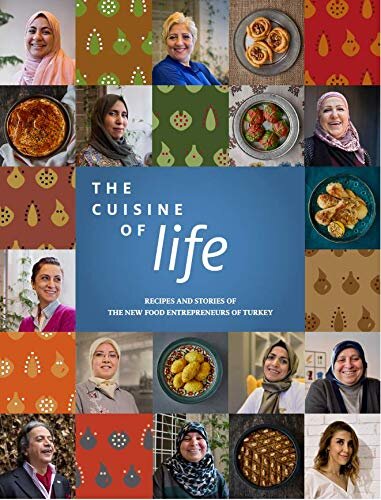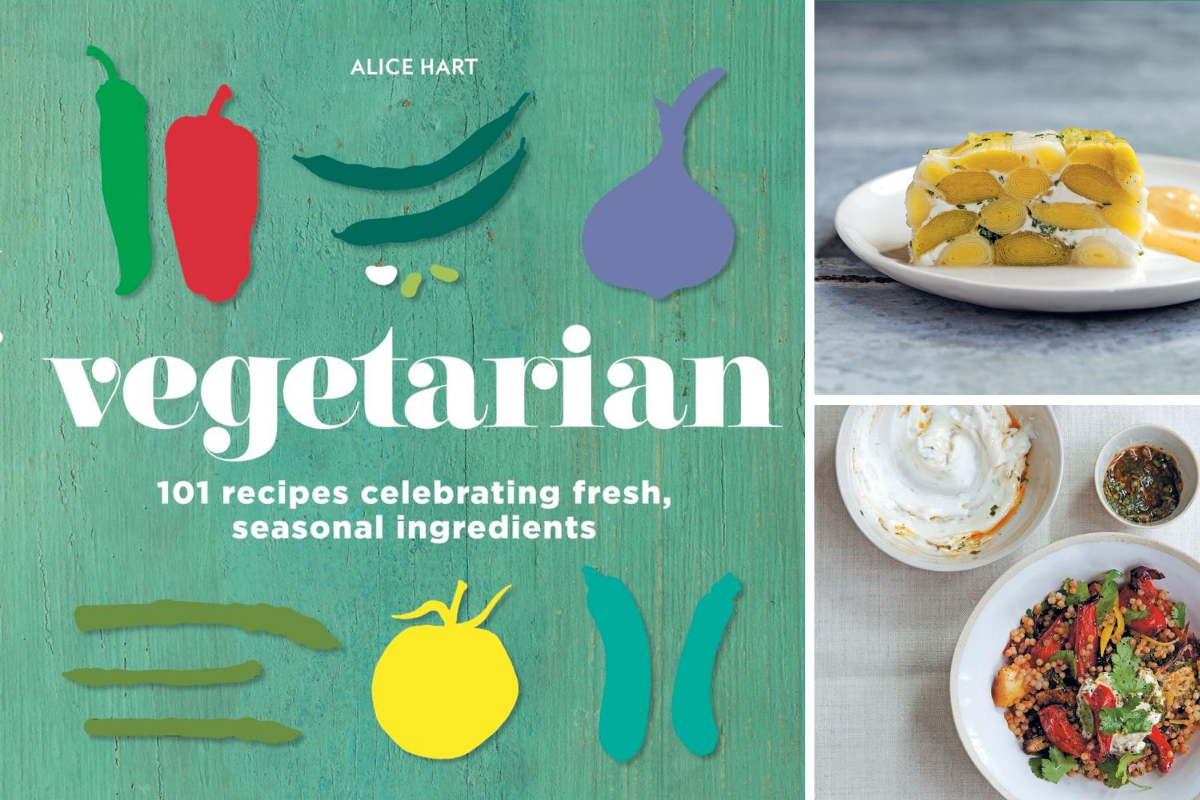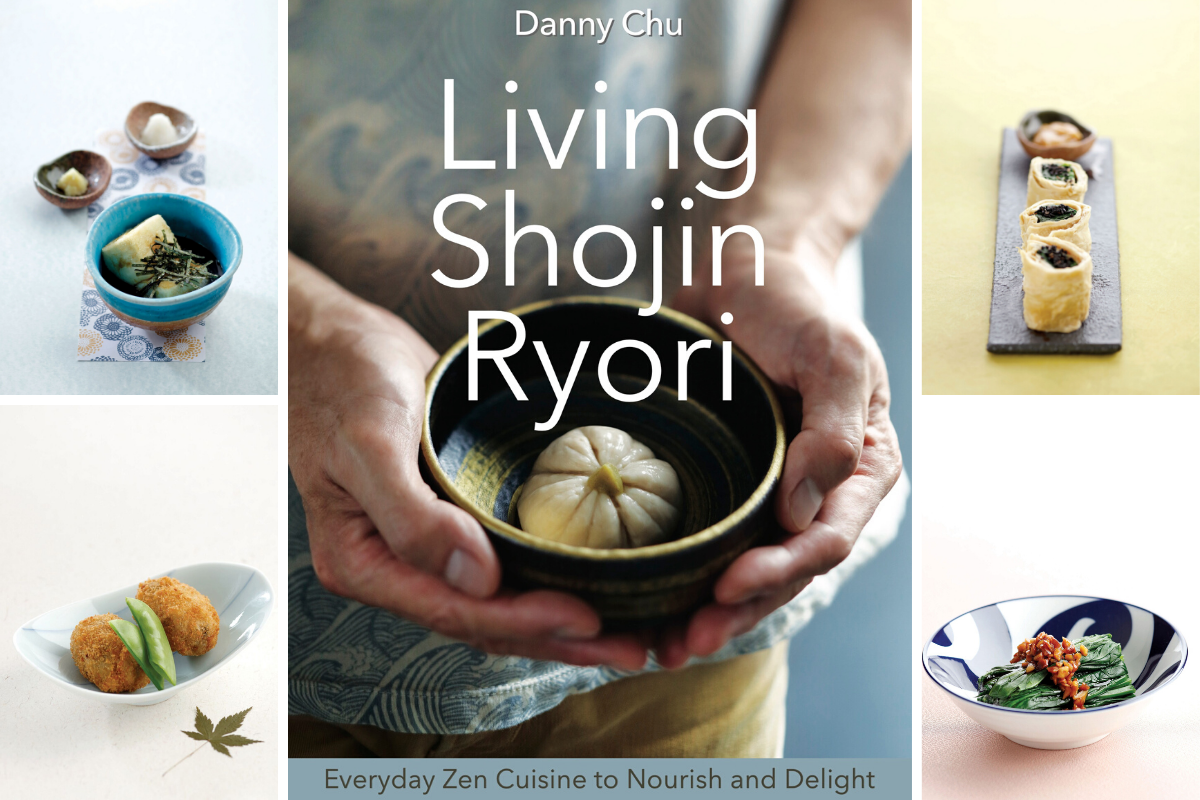Advertisement
What is gastrodiplomacy?
11 August 2020 · Author Profile
“Throughout history, it has not been the sword or the tank that has determined the outcome of war. It is access to food.”

“Food has been a central feature of my own life story.”
Johanna Mendelson Forman is an Adjunct Professor at the School of International Service at American University in Washington D.C, and is a Distinguished Fellow at the Stimson Center, also in D.C., where she leads the food security program. Johanna recently co-edited The Cuisine of LIFE: Recipes and Stories of the New Food Entrepreneurs of Turkey which is now available on ckbk. In her guest post below, she talks about the importance of food as ‘soft power’ and its usefulness as a diplomatic tool for drawing people and societies together.
“I study the connection between food and war, Conflict Cuisines®. My career did not start out in the food world but food has been a central feature of my own life story. My mother transcribed the recipes of women who had escaped the Holocaust. My grandmother was always trying to teach me how to cook. It took my own work in security and development to actually point me to the power of food to change lives, to connect people and to sustain memories.”
“The more I experienced societies that had survived a war or an internal conflict, the more it seemed that food was the ultimate weapon of war. Throughout history, it was not the sword, or the tank, or the drone that determined the outcome of war. It is access to food. Whether it is about feeding a conquering army or citizens caught in the cross-hairs, finding adequate nutrition is a literally a matter of life or death.”
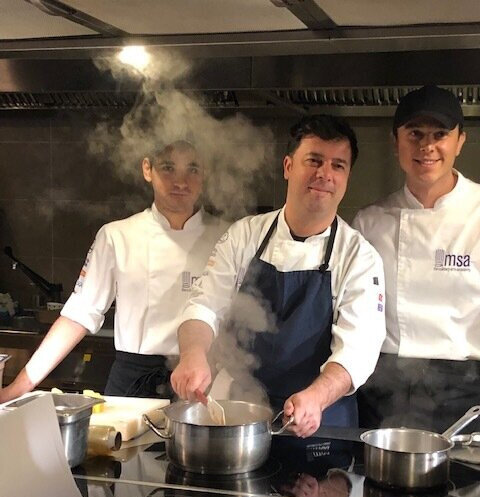
Chef Cem and his two student assistants testing recipes from the ‘The Cuisine of LIFE: Recipes and Stories of the New Food Entrepreneurs of Turkey’, a cookbook co-edited by Johanna that features recipes by refugee food entrepreneurs and essays about the way food creates community.
Conflict and famine
Today there are 36 active intractable conflicts occurring around the globe. The World Food Program (WFP) has identified famines in Yemen, Syria, parts of the Sudan, and the Central African Republic. Lebanon, once a middle-income country, is reeling under the collapse of its economy, the flood of Syrian refugees, and hyperinflation that does not even allow the middle class to eat outside the home. According to the WFP, between September and May, Lebanon saw a 109 percent increase in the monthly average price of a basket of foods considered to be the minimum needed for survival.
Lebanon’s food crisis is a function of its continued dependency on food imports. The port explosion on August 4th destroyed 15,000 metric tons of wheat, as well as Lebanon’s main grain silos, meaning ships bringing in the estimated 65 to 80 percent of the country’s food that comes from abroad may – at least for a while – have to dock at other ports. This will likely contribute to already rising prices. Finally, the coronavirus pandemic, which knows no borders, has affected all countries, developed and less developed, in its disruption of food supply chains.
In the United States, jobless people line up for hours at food banks. Community kitchens have replaced formal restaurants to prepare meals for those who no longer can afford them, and for schoolchildren who are no longer receiving their breakfasts and lunches at the local schools. Even in this war against a global pandemic, food remains central to the lives of everyone on this planet. With global food supply chains broken, many people are suffering.
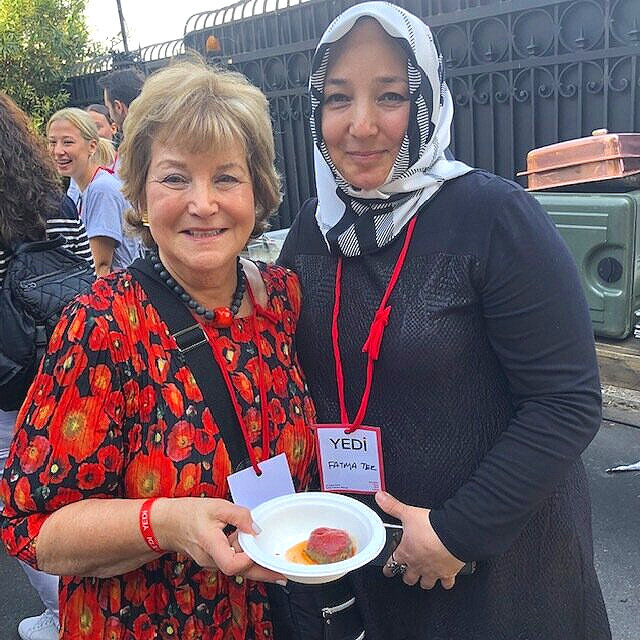
Johanna with a Syrian woman who was a student at the LIFE project at a conference in Istanbul – with her delicious swiss chard dumpling!
Food as a tool for positive ‘soft power’
When I chose to examine how governments use food as a tool of soft power, there was much known about culinary diplomacy, but little about a more recent form of state promotion of regional foods to entice visitors and distinguish a location. This phenomenon, known as Gastrodiplomacy, has been a powerful force in the global tourism sector.
Destination dining is the reason that 60 percent of all travelers seek to visit another country, according to the World Food Tourism Association. And even this industry is in jeopardy as international travel is almost impossible, as borders have closed to prevent the spread of coronavirus.
In the second decade of this century an interesting subset of food related activities gained prominence. Social gastronomy, the use of food to create social impact, to help others find a way forward, has captured the attention of organizations that recognize that the kitchen has become the new venue of foreign policy.
Social gastronomy uses food as a means rather than an end to ensure job training, integration into new societies for refugees, and support gender integration into kitchens. Even if you cannot speak the language of a new homeland, through the kitchen you can make yourself understood. You can build common ground around a table. You can recognize regional similarities in certain dishes.
Recognizing these similarities and cooking alongside others who are also seeking new beginnings helps build a social fabric that can endure hardships and build greater resilience.

About the author
Through her wide-ranging career in international affairs, Johanna Mendelson Forman has built a reputation for addressing longstanding issues with new perspectives and innovative ideas. Her front-line experience as a policymaker on conflict and stabilization efforts drove her interest in connecting the role of food in conflict, resulting in the creation of Conflict Cuisine®: An Introduction to War and Peace Around the Dinner Table, an interdisciplinary course she teaches at the School of International Service at American University in Washington, D.C.
Johanna developed a new interdisciplinary platform examining why food is central to survival and resilience in conflict zones. Today her research focuses on the study of gastrodiplomacy and the emergence of social gastronomy, the use of food as a means of social impact and investment to communities at risk.
She is one of the leading voices in the global Social Gastronomy Movement, which is helping a new generation of chefs and food activists address issues including climate change, food waste, and ending global hunger.
In 2017 Johanna helped launch the Livelihoods Innovation through Food Entrepreneurship Project (LIFE), a consortium of organizations under the Center for International and Private Enterprise (CIPE). This program, supported by the U.S. State Department, has supported Syrian refugees and Turks who are using food entrepreneurship as a tool for social integration.
Now available in full on ckbk…
Related Posts
Sign up for ckbk's weekly email newsletter
As an added bonus you will receive a free PDF download featuring recipe highlights from our favorite cookbooksAdvertisement

